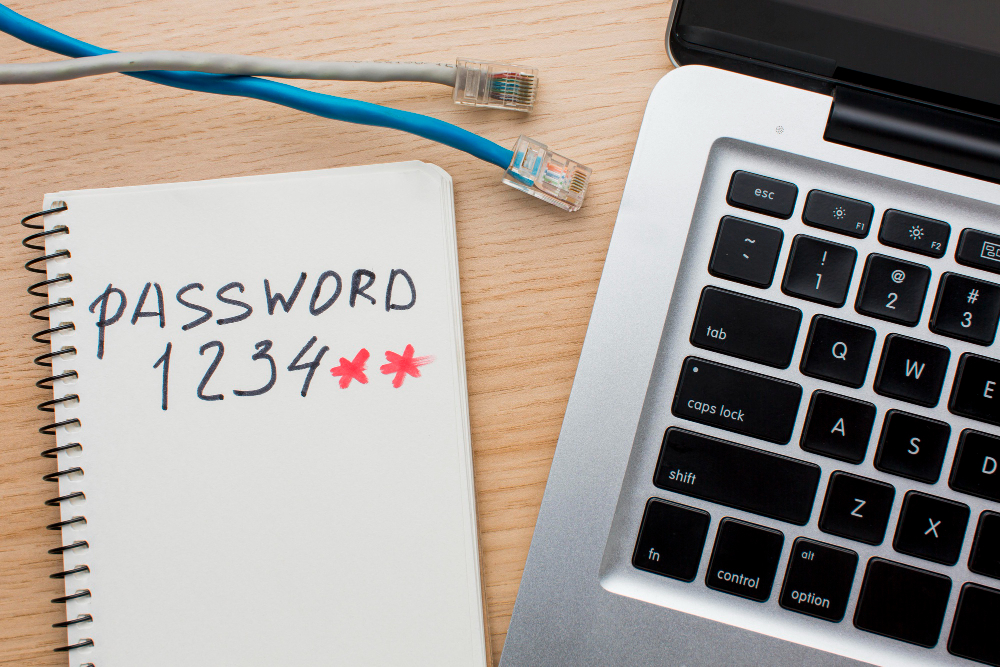Strong Password Ideas for Ultimate Online Security
In today's digital age, where cyber threats lurk around every corner, protecting your online accounts with strong and secure passwords is of paramount importance. With hackers becoming increasingly sophisticated, it is crucial to create robust passwords that can withstand their malicious attempts. We understand the significance of online security, and we are here to provide you with a comprehensive guide on strong password ideas that will help you fortify your digital presence.
Why Strong Passwords Matter
Before diving into the various strong password ideas, let's first understand why they are so crucial for your online security. Password act as the first line of defense against unauthorized access to your personal or sensitive information. Weak passwords make it easier for hackers to gain access to your accounts, potentially leading to identity theft, financial loss, or other detrimental consequences.
Creating strong passwords significantly enhances your protection by increasing the complexity and difficulty of guessing or cracking them. With robust passwords in place, you can minimize the risk of unauthorized access and ensure the safety of your online presence.

Characteristics of Strong Passwords
To craft strong and secure passwords, it is important to consider certain key characteristics. The following elements contribute to the strength and effectiveness of a password:
Length:
Opt for longer passwords as they tend to be more resilient against brute force attacks. Aim for a minimum length of 12 characters or more.
Complexity:
Combine uppercase and lowercase letters, numbers, and special characters to introduce complexity into your password. Avoid using easily guessable patterns or sequences.
Uniqueness:
Each online account should have a unique password. Reusing passwords across multiple platforms increases the risk of compromising multiple accounts if one password is breached.
Avoid Personal Information:
Avoid using easily guessable information such as your name, birth date, or address in your password. Hackers can often find this information through social engineering or data breaches.
Effective Strong Password Ideas
Now that we have covered the importance and characteristics of strong passwords, let's explore some effective ideas for creating robust passwords:
Passphrase:
Consider using a passphrase rather than a single word. Passphrases are longer combinations of words that are easier to remember and harder to crack. For example, "C0ffee&Cake@Breakfast" or "Sunset@Beach#Vacation" are strong passphrases.
Random Substitution:
Take a memorable word or phrase and substitute certain characters with symbols, numbers, or similar-looking characters. For instance, replace 'o' with '0', 'a' with '@', or 's' with '$'. For example, "P@ssw0rd" or "S3cur1ty!".
Acronyms and Mnemonics:
Create a password using the first letter of each word in a sentence or phrase. To enhance complexity, mix uppercase and lowercase letters and include special characters. For instance, "I love to travel to Paris in summer" can become "1L2t2P!s".
Passphrases with Numbers:
Incorporate numbers into your passphrases to add an extra layer of security. Choose a memorable phrase and replace certain words with numerical counterparts. For example, "Th1s Is A Str0ng P@ssphr@se".
Three Random Words:
Select three random words and combine them to create a password. To increase complexity, include uppercase letters and special characters. For example, "Giraffe$Sunflower@Cloud".
Two-Factor Authentication (2FA):
Enable 2FA whenever possible. This adds an extra layer of security by requiring a second verification step, such as a fingerprint scan or a unique code sent to your mobile device.
Password Managers:
Utilize a reputable password manager tool to securely store and generate complex passwords for all your online accounts. This ensures that you don't have to remember each password individually while maintaining high levels of security.
Regular Password Updates:
Change your passwords periodically, ideally every three to six months. Regular updates minimize the risk of compromised passwords.
Stay Informed about Data Breaches:
Stay updated on the latest news regarding data breaches and security vulnerabilities. If a service or website you use experiences a breach, change your password immediately.
Conclusion
Protecting your online presence starts with creating strong and secure passwords. By following the tips and ideas outlined in this article, you can significantly bolster your online security defenses. Remember to prioritize length, complexity, and uniqueness, and avoid personal information when crafting passwords. By taking the necessary precautions, you can enjoy peace of mind in the ever-evolving digital landscape.